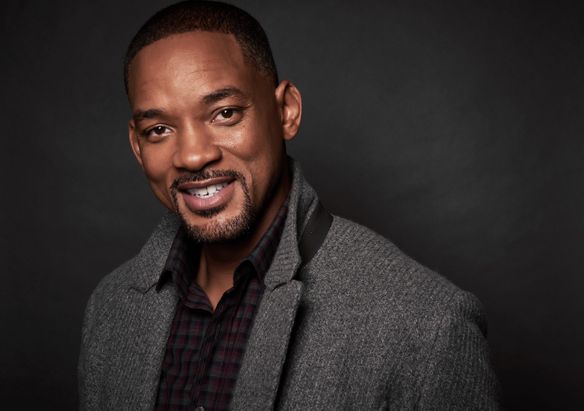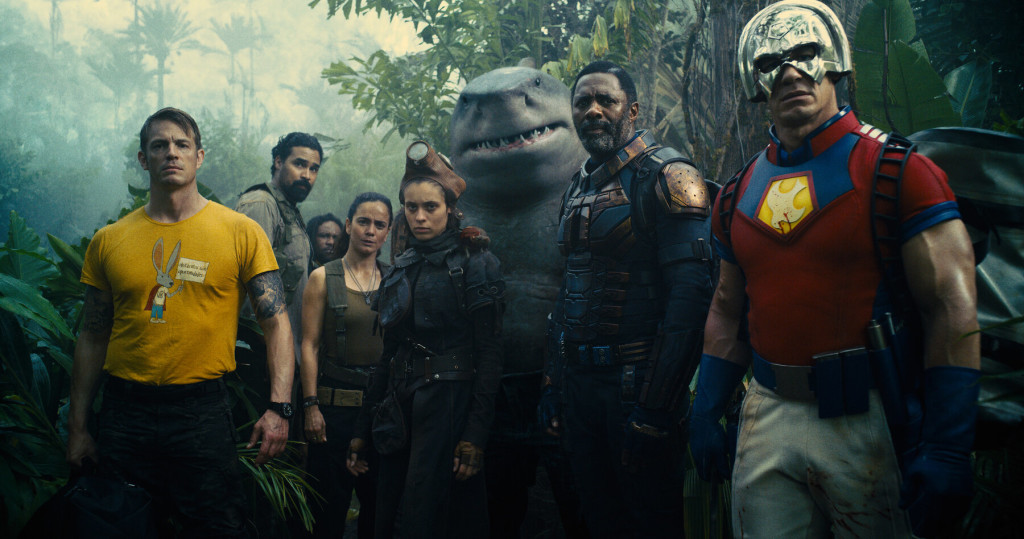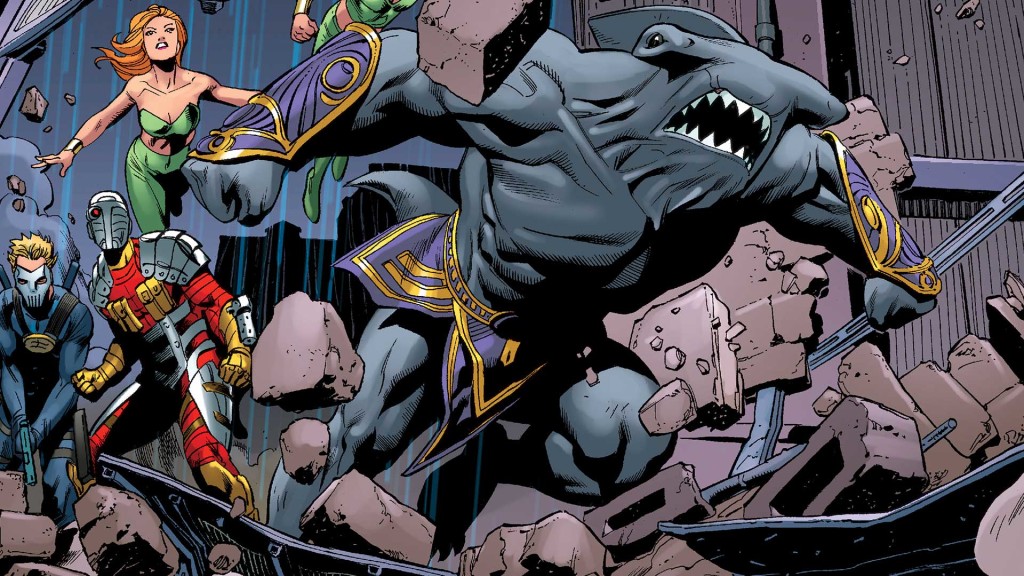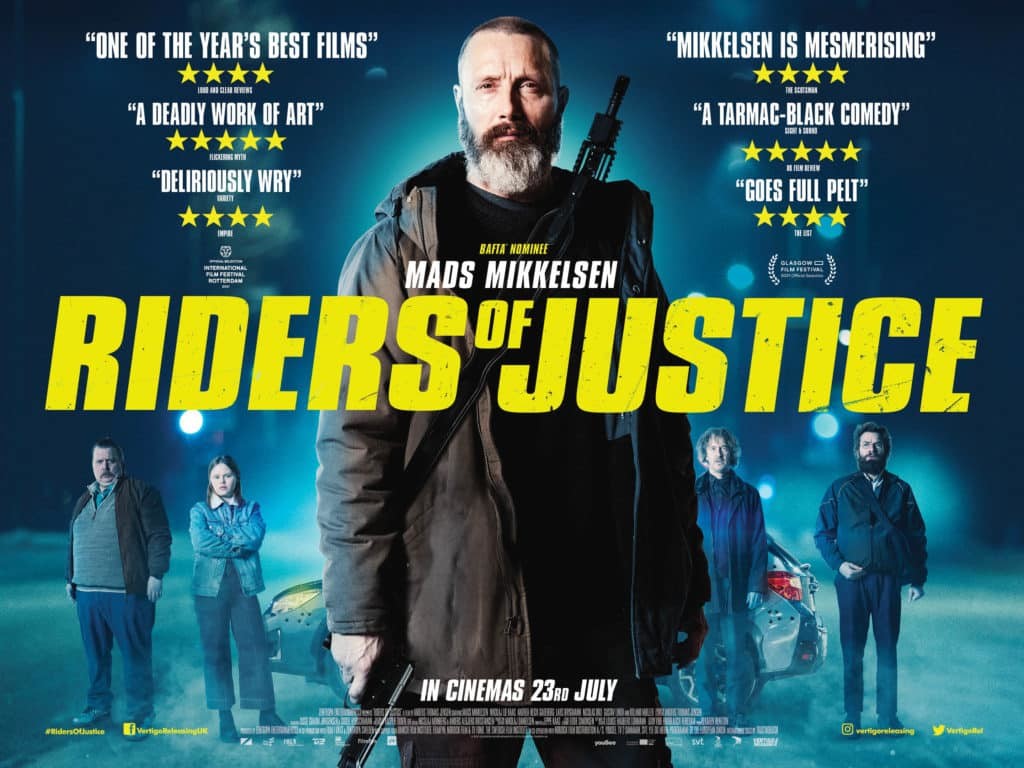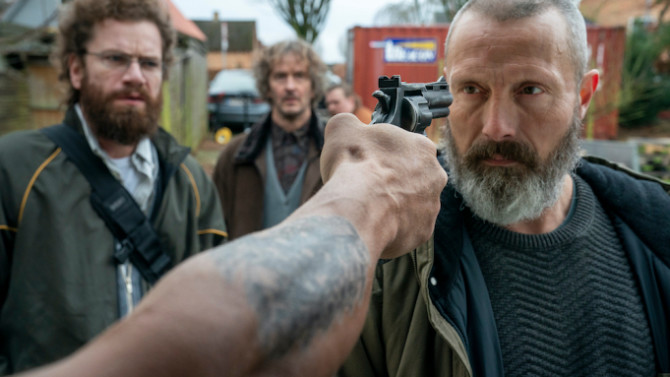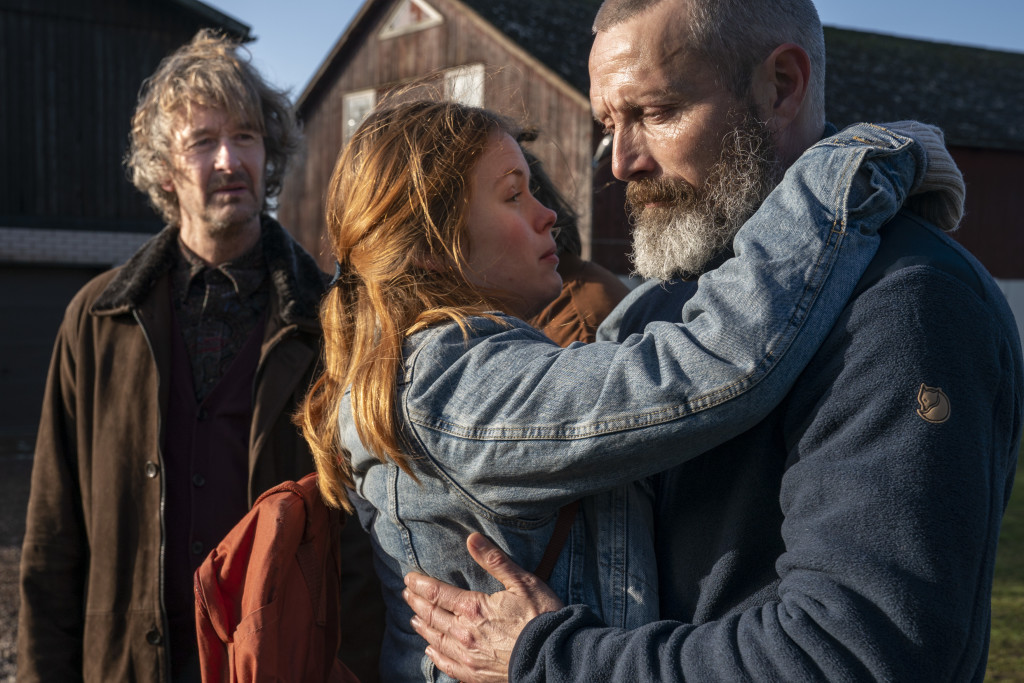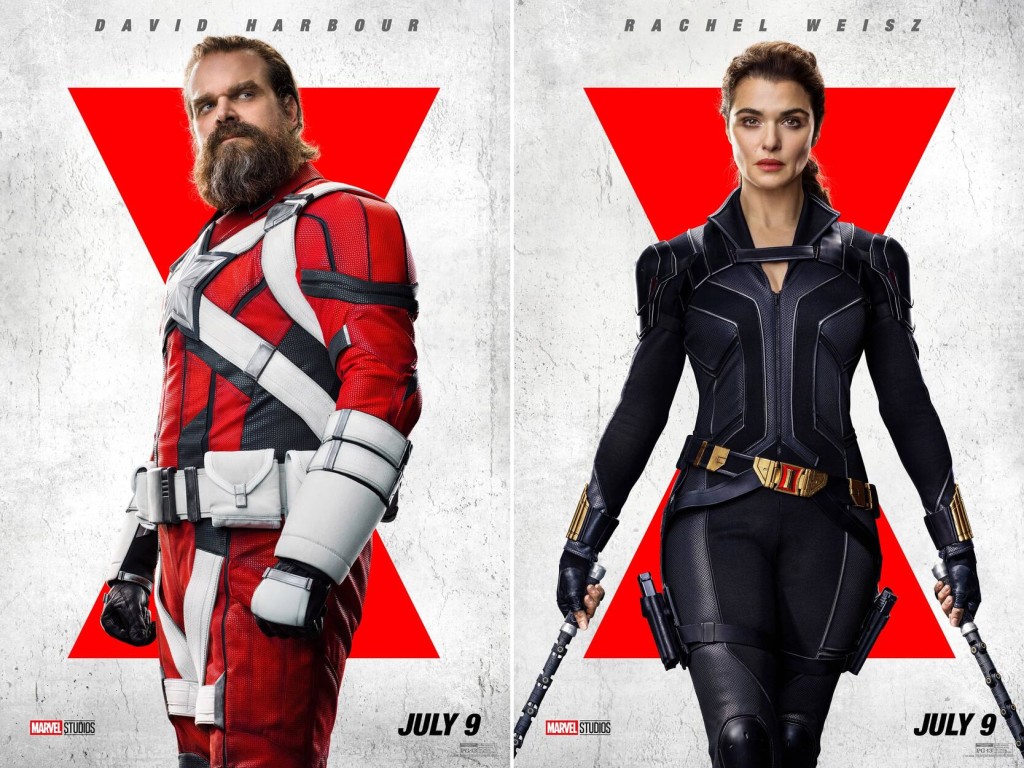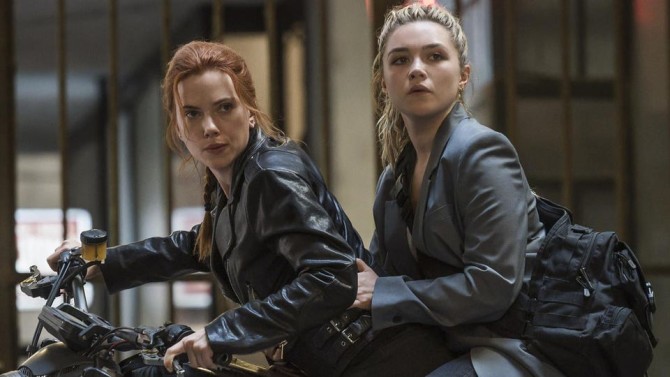Search Results for: girl on the train
Might Emancipation be the next Revenant, switching out a bear for an alligator?
Genre: True Story/Drama/Thriller/Period
Premise: (from IMDB) A runaway slave forges through the swamps of Louisiana on a tortuous journey to escape plantation owners that nearly killed him.
About: This is the huuuuuge package that sold to Apple TV (for 105 million bucks!), no doubt buoyed by the attachments of Will Smith and Antoine Fuqua. One of the more interesting things about the project is that it was written by Bill Collage, who isn’t known for this kind of material. He wrote Assassins Creed, Allegiant, and broke into the industry with the college comedy, Accepted. This is pretty cool to see since it’s often thought to be impossible to break out of your pigeonhole. Emancipation proves it can be done!
Writer: Bill Collage
Details: 104 pages
Readability: medium
Figure out what’s unique about your script THEN LEAN INTO THAT. Simplest most effective screenwriting advice there is. If your concept doesn’t have anything unique about it, you’re probably in trouble. Because how do you mine unique scenarios out of a familiar premise?
You would think, at first glance, that Emancipation would fall victim to this pitfall. A slave on the run isn’t exactly an original premise. But look closer and you’ll find that you’re dead wrong. That’s because of one, seemingly, irrelevant factor – TERRAIN. The terrain that our main character must escape through is swampland. And swampland might be the most unique terrain of all.
It’s 1862. The Civil War is raging. Slaves are free but only in the North. In the South, where our main character, Peter, lives, slavery is still legal. Peter is ripped away from his family and sold to a man named Jim Fassel, who’s using slaves to build a railroad halfway across the state. Peter’s specific job is to bury slaves who die on the job.
Peter is two things – a God fearing man and a perceptive man. And he hears a few of Fassel’s men talking about how Baton Rouge was claimed by the Union army. That’s about a 5 day journey north. He thinks he can make it. So he pitches the idea to four other slaves. They think he’s crazy but eventually buy in.
When the time is right, they make a break for it. When Fassel and his hounds begin chasing, the five split up. Which means Peter is alone. He eventually trespasses on a farm, resulting in the family hunting him throughout their cornfields. Peter escapes to the bank of the swampland, and reluctantly enters. Within seconds, he’s attacked by an alligator. This is not going to be easy.
Peter improvises his way through miles of swampland, at one point building a makeshift canoe out of a hollowed tree. He encounters 100 degree heat, giant spiders, gianter rats, snakes, more gators, even raging fires. He finally makes it to the end of the swamp and jumps on a passing train. The train takes him to the battlefield, where he’s forced to join the war and fight. But before he does, someone sees his back, which is scarred with lash marks. A war photographer takes a picture of it and that picture becomes one of the most well-known photos in American history and the face of slavery.
Emancipation tries to walk a three-pronged tightrope over the course of its 100 pages. Those prongs include 1) entertainment 2) reality 3) trying to win an Oscar. I liked when the script was focused on 1, not so much when it was focused on 2 or 3.
One of my favorite moments occurs when Peter first goes into the swamp, sees an alligator, turns back to shore, sees his pursuers, and must choose which direction to go. He chooses the alligator, which forces him to fight it, leading to, easily, the most memorable scene in the script.
There are also encounters with snakes, with spiders, and with a terrifying animal I’d never heard of before called a Louisiana swamp rat. Just the way these things were described scared the hell out of me. These were the moments when the script felt most alive, mainly because of what I said at the outset – we were leaning into what was original about the material.
The reality stuff was harder to stomach. There’s a sequence where Peter comes across an abandoned slave house and goes down into the basement to find that a dozen slaves were chained up and left to die. There’s one 10 year old girl barely still alive who Peter tries to save to no avail. Those moments were too sad for me. I found myself not wanting to subject myself to more of that.
Then you had the statue-chasing moments. The big one occurs when Peter takes off his shirt to have his scarred back photographed. It’s an iconic moment because Peter is based on the slave who the original picture was taken of. The problem is that the original picture has inspired so many versions of this scene throughout history that it, ironically, feels cliche. It also feels like it’s trying to be a big important moment. And that’s when moments don’t work. Cause we feel the manipulation of the writer underneath the scene. For these moments to work, you have to come at them in the most natural way possible. Which Emancipation does not do.
I think the reason I’m on the fence about Emancipation is because the first 45 pages promise something intense and visceral and entertaining. I loved, for example, the escape sequence in the opening act. It was like a mini-version of The Great Escape. Then, right after that, it becomes this exciting chase movie.
But the script makes this choice to become darker as it continues on and so, with every 15 pages, I was a little less engaged than I was the previous 15 pages. Which leaves me not quite sure how I’d rate the script. If I were basing the rating off the first 45 pages, it would get an “impressive” without question. But, unfortunately, movies don’t get graded on their best 45 minutes.
The straw that may have broken the camel’s back was Peter himself. He just wasn’t that interesting. His core identity is built around his unwavering belief in God. For every obstacle he encounters, he assures everyone that he’s going to be fine because of God. And he’s right. He always comes out okay.
But how does that make for an interesting character? For characters to be interesting, their inner beliefs need to be challenged in some actionable way. So what you would do is place Peter in a dire situation where his only way out is to denounce, or stop believing in, God. In that moment, Peter has an actionable choice of whether to live, in which case he denounces everything he believes in, or die, in which case he goes to the grave still believing. That’s how you develop character. You constantly challenge their belief system, whether that be a belief in God or a belief in drinking alcohol til you’re blackout drunk every night.
But nothing like that ever happens in Emancipation. There isn’t any character growth at all. I think they figure you’ll get your emotional needs met through the ups and downs of Peter’s harrowing journey. But my experience has taught me that these movies only stay with audiences when there’s character growth. And there’s none of that here.
Emancipation has some really great moments. But the majority of them are packed into those first 45 minutes. What my rating comes down to is simple. Would I tell people to read this? I probably wouldn’t. It just never quite lives up to its promising opening.
[ ] What the hell did I just read?
[x] wasn’t for me
[ ] worth the read
[ ] impressive
[ ] genius
What I learned: Make a little movie out of your first act. Don’t get locked into this idea that your first act is only about setting your characters up. Do what Emancipation does. It uses its first act to create a mini-movie built around escaping “prison.” The planning, the suspense, the build-up to their escape – all of that makes for a really exciting mini-movie that thrusts us into the second act.
Genre: Superhero
Premise: The infamous Suicide Squad are dropped off on a Cuba-like island where they’ve been tasked to overthrow the authoritarian government.
About: 2016’s Suicide Squad was supposed to be DC’s secret weapon and depending on what metric you used, it either succeeded (it made 750 million at the global box office) or failed (nobody liked it). The fan reaction was so steeped in apathy, in fact, that a second movie was up in the air. Then, as if by some miracle, the sequel got someone, in James Gunn, who would normally never stoop to making a Suicide Squad film. And, all of a sudden, they had a hot juicy project on their hands. During the last year, The Suicide Squad was the most buzzed about upcoming superhero movie of them all. Well, it finally came out this weekend and, unfortunately, it looks like the pandemic once again reared its ugly head, eating into the film’s box office, as it only took in 27 million. For reference, Black Widow, released a month ago, made 80 million. There is a caveat to this. The Suicide Squad could be seen for free on HBO Max at home. I’m sure that ate into the numbers a bit because if you look at the reviews, both critically and fanwise (92% and 85% respectively), everyone seems to have liked the film. Which makes it very hard to tell where the Suicide Squad franchise goes from here.
Writer: James Gunn
Details: 132 minutes
I think everyone here knows the first question I’m going to ask.
Is Suicide Squad better than Jungle Cruise?
Such a great question. But the real question we should be asking is, is any movie better than Jungle Cruise?
Okay okay. I’ll stop the trolling.
The Suicide Squad is definitely a better movie than Jungle Cruise.
Let’s try to find a better comp, though.
Is Suicide Squad better than Army of the Dead? In both films you’ve got a team of bad people going into a dicey area where they’ve been tasked with achieving a singular goal.
I’m happy to report that The Suicide Squad is better than Army of the Dead. It’s actually not even close.
But now let’s make things interesting.
Is Suicide Squad better than Black Widow?
Now you’re moving into a dicier discussion because there were a couple of things I thought that Black Widow did better than The Suicide Squad. I thought that its depiction of a broken family hit harder emotionally than anything The Suicide Squad did. And I thought that both Black Widow’s sister and her father were funnier than any of the characters in The Suicide Squad. So I had a little more fun with the Widows than I did the Squad.
With that said, The Suicide Squad took a lot more chances than Black Widow and, as a result, was the more interesting film. I know that one thing James Gunn made a priority was that no one should be safe here. Marvel has become a joke in that respect because you know that nobody’s going to die in their movies. And, even if they do – *cough, Black Widow, cough* – they get their own movie a year later. So the fact that nobody was safe here ensured that the film was unpredictable. You guys know how much I love that.
But The Suicide Squad is a tough movie to assess. It has sky-high aspirations. It wants to be the team version of Deadpool. Yet it fails just as much as it succeeds in trying to live up to that expectation. I’m still trying to figure out why that is. There’s something gloomy about the proceedings that undermines their effectiveness. King Shark comes to mind. This character should’ve been the next Groot. But he just isn’t. He’s actually kinda boring.
For those who haven’t seen the film, the government sends a Suicide Squad group of supervillains to a Cuba-like island where they quickly realize they’re sacrificial lambs (one of the best moments in the movie is when Pete Davidson is blown to bits by the island’s army). Their job, it turns out, was to create a distraction for THE REAL SUICIDE SQUAD to sneak in, set up camp, and then come up with a plan to take out the island’s dictator.
The real Suicide Squad consists of their vanilla leader, Rick Flag, gun aficionado Bloodsport, angry killer Peacemaker, deeply psychologically troubled Polka Dot Man, sleepy girl who controls rats, Ratcatcher 2, always hungry King Shark, and, of course, what Suicide Squad team wouldn’t be complete without Harley Quinn? For those who don’t know the rules of The Suicide Squad, everyone on the team is outfitted with bombs in their heads and if they don’t follow orders, the bombs are remotely activated.
Once off the beach, the squad – which is already complicated by Mano a Mano d$@% measuring between Bloodsport and Peacemaker – makes their way through the jungle to the city. Along the way, they learn about this special Starfish creature that was found in space that is secretly being used by the dictator to control his people. That starfish (named Starro) is growing exponentially. It also has the ability to spit out little miniature starfish that attach themselves to people’s faces where those people now become a physical extension of the starfish.
The team breaks into the facility where Starro is being kept. Once inside, they quickly get split up. Because these are bad supervillains, remember, they don’t exactly follow the rules. If someone doesn’t like someone else, they kill them, as is the case with Peacemaker killing Boring Rick Flag. It starts to look like the group is such a mess that they won’t be able to come together to save the day. But once Starro, who’s become 500 feet tall by the way, escapes his confines, they have no choice but to get the job done.
The thing I like about the Suicide Squad movies – and something all screenwriters can learn from – is that they contain a perfect structural setup for a screenplay. A group of people come together to achieve a clear high-stakes goal. When you have that, the movie pretty much writes itself because we all know what the characters are trying to achieve and we’re excited to see if they can do it.
The conflict, in the movie, comes from within the group itself. What The Suicide Squad is SUPPOSED to offer that movies like Fast and Furious and Star Wars, and even Avengers, cannot, is that the conflict within their group is NUCLEAR. These aren’t just normal people coming together to get the job done. They’re evil people. They’re bad people. They’re people with no moral code. This is supposed to create such intense conflict that the group’s attempts to do even the simplest things become impossible.
The Suicide Squad tries to do this but James Gunn has a blind spot when it comes to letting his villains “villain.” Sure, he kills off the ones he never liked in the first place. But he loves the ones he loves so much that he doesn’t want to create too much conflict between them. As a result, we get these neutered “sorta conflict” scenes that feel like they’re missing a gear. Take the scene where Bloodsport and Peacemaker are trying to one-up each other with fancy kills in the jungle. It feels more like theater than that these two are actually trying to outdo each other. As a result, the scene is decent instead of iconic.
Then there are times where this works in Gunn’s favor. The man loves his characters so much that he’ll prioritize their development over any and all action. Take Polka Dot Man, for example. This could’ve been a joke character. The guy shoots polka dots, for God’s sake. But Gunn gets into his past and how awful a person his mother was while he was growing up. Gunn conveys this by occasionally showing Polka Dot Man’s point-of-view, where he sees everyone as his mother. Even when they’re fighting Starro, we see Polka Dot Man does not see a 500 foot tall starfish, but rather his 500 foot tall mother.
You can tell that it’s the biggest misfits Gunn connects to the most. We see this with his second favorite character, Ratcatcher 2. Ratcatcher 2 was not as effective as Polka Dot Man. But she has some great moments, including her contentious interactions with Bloodsport and that last second call-out to the rats in the city to save the day. It says a lot that Gunn didn’t use the obvious alpha character to save the day, but rather the team’s biggest underdog.
The one character he didn’t seem to know what to do with was Harley Quinn. And I don’t blame him. I still don’t get this character. We’ve proved she’s a failure as a character with the disastrous Birds of Prey. Why does WB keep pushing her?
What is she even doing in this movie? Why do they need her? At the end when she’s running around with a javelin, I’m thinking to myself, “What are you going to do?” Is she even trained with weapons? I made this same critique about Black Widow but at least Black Widow spent the first 15 years of her life being trained as an assassin. Has anyone ever taught Harley Quinn how to do anything besides not shut up? I will contend til the day I die that the only thing Harley Quinn has going for her is her look. But when it comes to personality and superheroing? She kinda sucks.
Whenever you finish a superhero movie, one of the criteria you use to judge whether the movie was successful or not is breakout characters. Did any characters break out here? I would say no. Polka Dot Man was interesting. Ratcatcher 2 was too, to an extent. But nobody here’s going to stay with me the way Peter Quill, Rocket Raccoon, Jax, and Groot stuck with me.
The Suicide Squad is swinging for the fences. Usually, when you do that, you either strike out or hit it out of the park. The Suicide Squad is that rare “swinging for the fences” hit that dribbles into right field for a single. You got on base. You’re fast so you have the potential to steal second. But it’s definitely not what it’s trying to be, which is a classic. And that’s unfortunate because I thought it had the potential to be.
[ ] What the hell did I just watch?
[ ] wasn’t for me
[x] worth the price of admission
[ ] impressive
[ ] genius
What I learned: Look for creative ways to convey backstory. Polka Dot Man had a psychologically abusive mother. However, we never do a flashback to his mother being psychologically abusive to him. Instead, we see other people through his eyes and those people take the shape of his mother. This was one of the most effective ways of conveying traumatic character backstory that I’ve seen in a long time.
Genre: Crime/Thriller
Premise: A single mother who’s about to be kicked out of her recently deceased father’s home becomes a hostage during a bank robbery that ends in shocking fashion.
About: HBO Max is not playing around anymore. They want their own IP. Which is why they bought up Black Choke. I’m thrilled about this development. The more buyers there are in this town, the more opportunity there is for screenwriters like you to sell scripts. And not just any scripts – ORIGINAL MATERIAL. Which, as we know, is sorely lacking in Hollywood. Black Choke sold last week and comes from Doug Simon, who’s previously appeared on the Black List with his contained thriller, “Breathe,” about a family who’s quarantined in a special underground tank after the world’s air becomes unbreathable.
Writer: Doug Simon
Details: 119 pages
Today’s script is an update on the 1998 movie, A Simple Plan. And dare I say, its execution is even better. Let’s take a look!
30-something Nina Trainer is barley making ends meet. She works two jobs, one of those as a maid. All so she can barely put food on the table for her young son. Nina needs a big break soon since the bank is about to re-claim her home.
40-something Sara, a security officer at that very bank, has seen better days. She was once the best cop on the force, until she tried to save some people from a burning car and has never been the same since.
One rainy day, two men in masks break into the bank and steal half a million dollars from the vault. While this is happening, a dumb teller tries to intervene, resulting in the robbers killing both him and the bank manager. Sara was shot as well and is barely hanging on.
As the robbers exit, they’re forced to take a random person in a rain parka so they don’t get shot by the police. They then speed away. Once inside the van, we pull away the parka hood to reveal… Nina! She was coming to the bank for one last ditch effort to stop them from taking her home.
Later, when they’re driving up the hills, trying to figure out what to do with Nina, she pounces, and the truck goes plunging down the hill killing everyone inside except for… Nina! As Nina is about to call the police, she notices that there’s a car with two dead people and HALF A MILLION DOLLARS inside. Free money! Money that will solve all her problems.
She takes the money, finds and steals a car, and drives home. Nobody saw Nina inside her parka so she’s Scott free. That is until her awful ex-husband, Ray shows up. Ray spots the money and wants in. Because she knows he’ll call the cops otherwise, she’s forced to bring him into the fold.
Meanwhile, Sheriff Keene heads over to the hospital to find that his old partner, Sara, is hanging in there. He wants to know what she saw during the robbery so they can find out who these dudes were. Not to mention the person in the parka they kidnapped. But Keene doesn’t know the half of it. You see, Sara was in on the robbery. And she quickly figures out that whoever her accomplices kidnapped now has the money. She just needs to find that person… and get the money back.
Not long ago, a writer sent me a bank robbery script for a consultation, and my big note to him was that the script didn’t have a hook. It was just characters committing a crime. He came back with a good point. He said, “Did The Town have a hook? Did Hell or High Water have a hook? How bout Heat?” I had to concede that he was right.
However, while a story hook isn’t necessary to sell a screenplay or get a film made, they’re the screenwriting equivalent of having your own publicist. Every time you send your query out, there’s this cool hook dangling there, making it impossible not to request the screenplay.
By not having a hook, you basically cut down the number of people who request your script ten-fold. Let’s run the numbers. If you send a query out for a screenplay that has a great hook, you might get 8 out of 10 requests for the script. If you send a query out for a script that doesn’t have anything resembling a hook, you’ll be lucky to get one request.
In other words, you’re playing 8 lottery tickets instead of 1.
Does that mean you should only write scripts that have a big hook? The short answer is yes. Especially if you’re an unknown. But there’s a bigger point to be made here, which is that, the less of a hook you have, the better the script needs to be. Since less people are going to read it, those people will have to be louder in their endorsement of the script. And they’re not going to be loud unless you blow them away. Let me now ask each and every one of you here at Scriptshadow, how many times are you BLOWN AWAY by a script?
Conservatively…. Once a year? Once every two years maybe?
But this gets into an even DEEPER question, which is, should you assume that you’re the exception? Should you assume that you’re the one writer a year who writes the script that BLOWS PEOPLE AWAY? And therefore, because you are that exception, you don’t need a hook? Theoretically, we should all feel this way, right? If we don’t believe in our writing, who will?
But my whole thing is, why make things harder for yourself? They’re already hard. The odds are already stacked against you. Why not do something that makes things easier for you? You can still believe in your writing. You’re just making sure that more people get a chance to read it!
I bring all of this up because today’s script has a fairly basic premise (it’s got a *bit* of a hook but nothing I haven’t seen before) and despite its pedestrian setup, it’s one of the rare instances where the writing is so good, it makes up for the lack of a hook.
For starters, Doug Simon does an incredible job making you fall in love with Nina Trainer. I’ve talked about using bully scenes to make your hero sympathetic before. If you show a bully picking on your hero early on in the screenplay, we’re going to have sympathy for them.
But you don’t have to approach the bully setup literally. In Black Choke, when we meet Nina, she’s a maid riding up the elevator to clean an office floor. When the elevator doors open, we see a group of drunk laughing office workers who’ve just finished up the day with a party. They stumble into Nina – to them a faceless maid – who then comes out onto a trashed office floor, cake and ice cream scattered about, no thought whatsoever for who has to clean up their mess. This is going to take all night. These jerks have effectively bullied Nina, just in a non-traditional way.
Now, normally, you’d look at this and say, “Who cares? Everyone knows you have to make your hero likable or sympathetic. That’s screenwriting 101. This should hardly be considered ‘good writing,’ Carson.”
But here’s where the skill is. Later in the movie, Nina is going to be doing some bad things. She’s going to be stealing half a million dollars, for example. She’s going to be killing someone. When your hero is going to be doing some truly despicable things, your average “save the cat” or “kick the dog” trick isn’t going to be enough. You have to come up with something that’s going to make us love this character no matter what they do. Which is why this opening is so good. We see this woman being dehumanized by these jerks to such a degree that we’re going to love her no matter what.
Simon also does a kick-ass job of keeping us guessing in a plot where we already know he’s trying to trick us. Pretty much every major story beat had a surprise development in it. Hill achieved this by setting up each plot beat so that you’d only ever assume one outcome. That way, when the other outcome occurred, you were shocked.
When Nina’s ex-husband, Ray, finds out about the money, he becomes the most important variable in the story. Nina can’t do anything without figuring out how to keep Ray happy, since he knows the secret and has to be involved. Now, as a screenwriter, I would tell you that this is dramatic gold. Keep Ray front and center because he complicates Nina’s journey so much. Therefore, when Ray’s accidentally killed later (in a really fun scene), it’s a total shock because the twist HELPS rather than HURTS Nina.
But then Simon hits us with another twist. It turns out Ray told his current girlfriend, Eliza, about the money. She calls Nina, wanting her cut. Which means Simon was able to both give us a shocking twist AND keep the exact same amount of pressure on Nina, by supplanting Ray with Eliza.
There’s a lot more good here I could write about. This script is really clever and really fun. My only complaint is that there are too many characters. I’m not convinced the script needed so many people. But, boy, it’s so well-done. If you want to write a crime script without a hook, check this one out. It shows you where the bar is.
[ ] What the hell did I just read?
[ ] wasn’t for me
[ ] worth the read
[x] impressive
[ ] genius
What I learned: I used to dislike small town crime movies. They didn’t have that sheen a big city crime movie has, like “Heat” with Los Angeles. But now I know why they work. They work because the small town setting means everybody knows each other. And when everyone knows each other, you can have a lot more fun with the characters. For example, bank security guard Sara is trying to help Sheriff Keene find the money. Normally, this is a standard pairing. But their scenes are charged because they used to be partners, and when they were partners, they were sleeping together. That’s harder to do in a big city crime movie where the individuals are more separated. So if you’re trying to decide between the two, know that the big city crime movie will feel bigger. But the small-town crime movie has more character possibilities.
Today’s film will end up in my Top 10 movies of the year, maybe even my top 5!
Genre: Thriller/Drama/Comedy
Premise: After a highly volatile army general loses his wife in a subway crash, a trio of mentally unstable men come to him with evidence that the crash was orchestrated by a criminal organization known as the Riders of Justice.
About: Nikolaj Arcel and Anders Thomas Jensen have written a ton of screenplays together. Anders has something like 25 feature credits. I guess they write and make movies a lot faster in Denmark! Star Mads Mikkelsen has worked with Jensen a number of times. Here’s Mads’ insight into their most recent collaboration process: “As far as I remember, I think Anders Thomas pitched both the story and the idea of morphing his two dramatic universes together: his own “insanity world,” and his more [straightforward] writer side, which writes dramatic things for others … Normally, he pitches me his stuff, and if I call him and say, “What the f**k are you doing?,” then that’s a good sign. Because it’s always insane, what he’s doing, and if I’m on board it gives him the confidence to continue writing.” Riders of Justice is currently a digital rental so you can watch it right now!
Writer: Nikolaj Arcel and Anders Thomas Jensen
Details: 2 hours long
I, of course, could’ve gone and seen “Old” this weekend.
The reason I didn’t was because I could’ve written that review without seeing the movie. I already know what’s going to happen. I know Old is going to be sloppy. I know it’s going to be inadvertently silly at times. I know the last 20 minutes are going to be terrible and not make sense. I know I’m going to get triggered about how someone as untalented as M. Night was able to pull the wool over everyone’s eyes for so long and make a living in this business. I’ve written that review a dozen times already. Nothing ever changes with Night.
Conversely, Riders of Justice may be the most unpredictable movie of the year. You have no idea what’s coming next. Not only that, but everything about this movie screams “This shouldn’t have worked.” The main character is aggressively unlikable. The tone of the movie shifts wildly between dead serious and sitcom-level broad. It’s weird. It’s unruly. It’s unconventional.
I love when scripts take big risks that shouldn’t have worked and somehow make them work because those are the scripts that have the decoded matrix within them. If something works that shouldn’t have, there’s some insight into the fabric of storytelling we don’t usually get.
Here’s a quick breakdown of the story. A teenage girl, Mathilde, and her mother, are riding a packed subway car. Otto, an odd man who uses extreme mathematical equations to predict car accidents, has just been fired from his job. Still, he offers the mother his seat. After she sits down, a sheet of metal from another train slices through the side of the train, killing everyone who was sitting on that side, including the mother (Otto and Mathilde survive since they were standing).
Markus, an army captain currently on duty, gets the call that his wife has died and flies home. Markus, who’s consumed with violence and anger issues, has a terrible relationship with Mathilde. This should be a time of togetherness. But he and his daughter seem as distant as ever. They are soon visited by Otto, who’s been studying the train crash. His computer model has discovered that this was not an accident, but rather a hit. A gangbanger who was also sitting on the fatal side of the train was about to name the Riders of Justice gang in court for a series murders. So the Riders of Justice had the other train deliberately crash into this one to kill him.
A furious Markus is now determined to kill every single member of the Riders of Justice, something he can’t do without help. So Otto enlists his buddies Lennart (who’s spent a large amount of time in a mental hospital) and Emmenthaler (an overweight OCD hacker with anxiety and depression) to help find each of the members and kill them. Of course, when the Riders of Justice figure out what’s happening, they take the fight to our motley unorthodox crew instead.
One of the hardest things to figure out about this movie is how a main character THIS UNLIKABLE could work. We talk all the time about how important it is to make a character likable because if the audience doesn’t like who’s leading them on the journey, they’re not going to care about the journey. And they certainly aren’t going to care whether the hero succeeds or not.
Markus shouldn’t have worked. He’s not only an asshole (one of the first lines we hear from him after he gets home from the mother’s funeral is to tell Mathilde that she needs to work out so she doesn’t get fat) but he doesn’t talk a whole lot. When someone’s an asshole and ALSO doesn’t say much, it exaggerates the assholeness. We’re not able to get inside their head to understand why they’re an asshole, so the fact that Markus just stares forward angrily all the time makes him even more unlikable.
So why do we still care? Why do we root for Markus?
Well, when you have an unlikable hero, it’s critical that you incorporate something called OFFSETTING. Offsetting is exactly what it sounds like. You come up with a bunch of things to offset the hero’s negative disposition. For starters, Markus’s wife was just killed. We’re always going to feel sorry for a character who’s just lost someone.
Markus is active. Audiences love active characters. They love characters who go after what they want. The more aggressively they go after it, the more we tend to like them. As soon as Markus realizes that his wife was murdered, he goes into Active-Mode. It’s time to kill the Riders of Justice.
Audiences also like characters who are good at what they do. There’s a scene early on where Markus goes to ask their first ‘person of interest’ what they know and the guy sticks a gun in his face and tells him to leave. Markus doesn’t say anything, lets the guy close the door on him, walks back to his car, and then, out of nowhere, he spins around, walks right back up to the door, knocks, and when the guy opens the door with the gun, Markus executes a blink-and-you-miss-it takedown of the guy, snatching his gun away then shooting him in the face. It’s not only an intense scene. It shows how skilled Markus is. After that moment, we think, “Yeah, I’m glad this guy is on our side.”
Another thing I noticed Jensen do was he offloaded more screen time than normal to the other characters. Riders of Justice is more of an ensemble piece than a “John Wick” style revenge movie. The reason why that’s important is because all of the other characters are interesting and positive and cool and fun. So we’re not stuck, 90% of the time, with this dreary angry man. That’s a big takeaway for me. If you have an intensely negative hero, consider making your script more of an ensemble piece.
The other thing about this script that shouldn’t have worked was the tone. On one side, you had Markus living in the most extreme intense dramatic movie you could imagine. While on the other side, you had Denmark’s version of Larry, Mo, and Curly.
There’s this whole subplot whereby Mathilde insists that her father see a psychiatrist for his anger issues and when she catches him talking to Otto, Lennart, and Emmenthaler in their barn, the four of them freak out and lie to Mathilde, telling her that they’re Markus’s new psychology team, here to make him better. They’re going to be sticking around for a few weeks and working with him 24/7. At one point, the ruse goes so far that Lennart, who, remember, is certifiably crazy, pretends to be a psychiatrist and does a therapy session with Mathilde. I mean that’s a scene you might see on Modern Family.
It took me a while to figure out how they made this work. Because this is the kind of thing I routinely rip screenwriters for – jumping back and forth between wildly different tones. What I realized was that these three characters weren’t just wacky to be wacky. As the movie goes on, we get into all of their backstories, which inform us why the three of them are so broken. In other words, their psychosis is anchored in reality. It’s not like Jensen said, “Eh, let’s just make him a goofball hacker and have him say funny nonsense.” This hacker has led a tortured life, as have the other two.
I still don’t think many writers could’ve pulled this off. But the ones who can are the ones who build up those backstories so that the “crazy” characters’ lives are based in some level of reality.
In the end, the thing I liked most about this script is that it morphed into this unexpected family movie. All these weird people were living together under one roof. And despite being the most unlikely family ever, they managed to make it work in a weird way. There was something sweet about that. And I don’t think I’ve ever used the word ‘sweet’ to describe a John Wick style premise. Riders of Justice shows you how to subvert expectations THE RIGHT WAY. If you liked Parasite, you’ll definitely like this.
[ ] What the hell did I just watch?
[ ] wasn’t for me
[ ] worth the stream
[x] impressive
[ ] genius
What I learned: Always try to link your hero’s journey to what you’re personally going through in life at the moment. It will instantly add depth to them. Here’s Anders on how he came up with the character of Markus: “It started with me having this completely normal 40-year crisis that all men have where you look at your kids, you look at your life, and you wonder, “How did I get here, and did I do enough?” You start rebuilding, you start looking forward, and you start looking for connections that will give your life meaning. That’s basically Markus’ character, a guy with PTSD returning home who’s lost faith in everything but needs to find a way to move forward in his life. Of course, it’s highly dramatized, but the core is very personal for me.”
What I learned 2: Anders is okay with ditching outlines if the script calls for it: “Normally, I’ll put a structure up on the wall then write a script from that. But with a script like this, it was a gut feeling. Especially in this film, it had to be a gut feeling. You had to get around so many characters and themes and layers, and if you put that up on the wall, it becomes somehow schematic. You can see the technicality of it. People in film schools hate when I say this, but it’s not something I can teach anyone.
Genre: Superhero
Premise: While the Avengers are on a break, Black Widow receives a message from her long lost sister that a Russian villain is planning something gnarly, requiring her to re-join her family to take care of the problem.
About: Black Widow’s 80 million dollar weekend haul proves that the only thing that Covid can’t beat… is Marvel. Eric Pearson wrote the script. And while that normally wouldn’t be a story, IMDB Pro has added a new classification – SCRIPT DOCTOR – to its credit vocabulary, and it appears that Pearson has script doctored almost every Marvel movie since 2015’s Ant-Man. What “script doctoring” means here is anyone’s guess! Black Widow was directed by Cate Shortland, who was heavily recruited by Scarlett Johansson. Johansson was big on Shortland after seeing her 2012 film, “Lore,” about five children forced on a journey during the last days of World War 2. Johansson called the film, “About as perfect of a movie as there is.” Rotten Tomatoes seems to agree with her, giving the movie a 94%. Although average moviegoers weren’t as excited, assigning the film a 76%.
Writer: Eric Pearson (story be Jac Shaeffer and Ned Benson)
Details: 133 min
I have a serious question.
Is Black Widow a superhero?
At one point, her sister says, ‘I called you because you’re the only superhero I know.’ I was like, “Sweetheart, can you do a cartwheel? Then you’re just as much of a superhero as Black Widow is.”
To this day, I still don’t know what Black Widow brings to the Avengers besides her flippy leg-chokehold bodyslam move. Can’t Tony Stark build her a suit to give her super strength or something? He basically turned the spidey-suit into a mini-Iron Man suit.
According to the latest Avengers movie, Black Widow is dead. Which means this Marvel incarnation takes place in the past, between Avengers assignments. Black Widow (aka Natasha) receives some red serum in the mail from her long lost sister, who implores her to use Tony Stark to find out what the serum is.
Instead, Natasha heads to Budapest to ask her sister, Yelena, why she sent it to her. The two haven’t seen each other since they were Russian children in a fake US family on assignment in Ohio. They don’t seem to like each other. I gathered that since, instead of hugging, Yelena tries to decapitate Natasha with a steak knife. The serum, as it turns out, allows people to be controlled by a mysterious man, who is using it to build an army of living drone soldiers.
The two realize they won’t be able to take this guy down alone so they go break their “father,” Alexei, out of prison and recover their “mother” as well. Before the family can take down the big baddie, they’ll first have to defeat Taskmaster, some metallic dude who has a Captain America shield. Will this pretend family be able to pull themselves together in time to get the job done? Or will they do what they always do – implode?
The funniest thing about Black Widow is that they’ve been campaigning to get Scarlett Johansson her own movie for almost a decade now and when they finally do it, she’s not even the star! Her sister, Yelena, is the star. She’s the one who has the problem. Natasha’s just along for the ride. As proof of how pedestrian a character Black Widow’s been, Yelena outshines her in every scene they’re in.
There’s a positive spin to this, though. A smart person who worked at Marvel said, “If we make a movie with just Black Widow, we’re f#$%d.” They knew she was too boring (and not superhero’ish enough) to carry a movie. So they built this team around her. And thank God they did because doing so turned Black Widow into a pretty darned good movie.
I actually learned something really valuable while watching this film.
When in comes to action movies, so many writers focus on the premise and the plot and set pieces and cool scenes. And all of those things are, of course, important. But let’s be real. If you’ve seen any big-budget movie in the last five years, you’ve seen this movie. You’re not going to come up with a set piece we haven’t seen before. You’re not going to come up with a car chase we haven’t seen before. You’re not going to come up with a fight scene that’s going to blow us away.
No matter how insane your imagination is, it’s unlikely you will ever come up with something that we haven’t seen before in other movies.
Which leads us to an obvious follow-up question: “Then what’s the point?”
Why even try?
If all we’re doing is copying things we’ve already seen, then why create yet another bloated CGI summer movie?
This movie reminded me why.
Because the truth about ANY movie is that if we connect with the characters, all of those moments – the car chases, the fight scenes, the set-pieces – we care about them. Even though we know they’re fake. Even though we’ve seen them before. When you connect with the characters, you enter into a quasi state of belief where the fictional world becomes reality.
Therefore, when you’re writing these movies, your core focus should be on creating a) believable characters and b) believable relationships. If you can tap into that rare thing where the character actions and interactions feel authentic – feel like they could exist in the real world – we will connect with and care about those people.
This script did a tremendous job of exploring a dysfunctional family. This was basically Little Miss Sunshine, the superhero version. This family has deep DEEP SET issues, deeper than any superhero movie I’ve ever seen. First off, the four family members? They’re not even a real family. They were a fake Russian family that was cobbled together to look like an American family for a covert operation in Ohio. So they grew up like a family, but they were all strangers to each other. That alone makes for a really interesting setup.
When you’re a pretend family, how much are you supposed to care about the others? When the mission of “Pretend Family” is over, how much responsibility do you have to talk to these people again? That conflict of not technically being a family yet still feeling the same guilt and frustrations associated with being a family made for some extremely emotional moments. I teared up more in this movie than any Marvel movie.
One of my worries going into this was, “How are they going to explain that Black Widow ghosted her family for twenty years?” But once you watch the movie, you get it. They’re not really a family. They don’t owe each other anything. And that makes Natasha and Yelena’s and Alexei’s interactions all the more fascinating since they’re all skirting the line of “I don’t have to care about you but I also want to care about you.”
I always find dialogue interesting when the motivations behind it are complex. And the motivation behind every dialogue scene in this movie is complex. Seconds after Yelena and Natasha rescue Alexei from prison, Alexei wants to talk about what his next mission is going to be while the girls are dealing with the fact that the only father figure they’ve ever had hasn’t even acknowledged that he’s happy to see them.
When he’s confronted with this, he makes an inquiry into how they’re doing, which quickly devolves into Yelena chastising him for placing her in a Russian spy training program where her uterus was ripped out to ensure that she would never have children. You got the sense that any conversation between this family could devolve quickly into that territory, which created that “walking on eggshells” undertone that makes dialogue so much more lively.
Black Widow works because the family works. Too many amateur screenwriters approach their big action movies the opposite way. They cook up a concept. They craft a plot. And then they try and cram their character storylines into that plot. I’m not saying that’s never worked before. But if you want to write an action movie where the viewer is actually engaged, Black Widow is the way to do it. Get the character right. Get the family dynamic right. And everything else in the story should follow.
Marvel continues to be the benchmark for high-budget franchise filmmaking. And, right now, the competition isn’t close.
[ ] What the hell did I just watch?
[ ] wasn’t for me
[xx] worth the price of admission
[ ] impressive
[ ] genius
What I learned: Normally, I encourage screenwriters to avoid bringing their hero’s past into the movie. Movies work best in the present. Especially action movies, which are all about the here and the now. However, when it comes to any movie dealing with family, IT’S ALWAYS ABOUT THE PAST. It would be weird if you made a family movie that DIDN’T bring up the past. Black Widow is all about the past. It’s about the fake lives they grew up leading, the terrible torture their father sent them into as children, the choices by Yelena and Natasha to avoid each other as adults. Everything in this movie is about overcoming the past. And, with movies about family, that’s how it should be.
Updated Marvel Universe Rankings
1) Thor Ragnorak
2) Captain America: Winter Soldier
3) Avengers: Infinity War
4) Captain America: Civil War
5) Spiderman: Homecoming
6) Guardians of the Galaxy
7) Ant-Man
8) Iron Man
9) Black Widow
10) Black Panther
11) Avengers: Endgame
12) Doctor Strange
13) Spiderman: Far From Home
14) Captain Marvel
15) Captan America
16) Thor
17) Guardians of the Galaxy 2
18) Iron Man 2
19) Iron Man 3
20) Loki
21) The Incredible Hulk
22) Avengers: Age of Ultron
23) Falcon and Winter Soldier
24) Wandavision
25) Thor: The Dark World
26) Ant-Man and the Wasp

